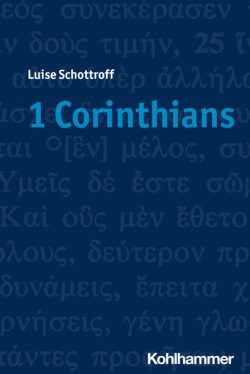Читать книгу 1 Corinthians - Luise Schottroff - Страница 15
На сайте Литреса книга снята с продажи.
4. Everyday Life in the Cities of the Roman Empire
ОглавлениеPaul speaks relatively often about the conditions under which he lives. He must work hard to support himself. Above all, he is exposed to dangers (4:12; 16:5–9) as he travels on foot through the expanses of the lands north of the Mediterranean Sea. He is, moreover, constantly in political danger. As a foreigner, he needs protection in the cities. Roman authorities in the cities, in part their inhabitants as well, are quite ready to persecute, beat, imprison and threaten with death (4:11–13) proclaimers of God’s peace, which is fundamentally different from the peace offered by the pax Romana.
The living conditions of most of the people in the cities become incredibly clear through many details in this letter. Paul speaks of poverty and a lack of education (1:26–31). He criticizes the rhetoric used in public gatherings (2:1–5) and probably the thrashing of children in the schools (4:21). He speaks knowledgably about architecture (3:9–17), about the competence of the courts and about the linguistic diversity of the cities and their problems (14). Many aspects of city life in antiquity can be found in this letter. Shocking in all this is the role violence plays in daily life, above all the role it plays in mass gatherings (4:9–13) and in the lives of slaves (7:21–24).
This letter is written to give the brothers and sisters courage—through an interpretation of the Torah that applies it to their daily lives and through praise for the God of Israel. The first chapters of the letter show how difficult it is for members of the congregation to extricate themselves from their own complicities and embroilments, from competitive behavior and well-worn patterns of subordination under diverse masters and from the non-exceptionality of violence in sexual relationships. Even at the Lord’s Supper some still try to take advantage of the privileges to which they have grown accustomed. The balancing act between the city’s official cults that chapters 8–10 bring to light is striking. Then, from chapter 12 on, Paul speaks less often about the difficulties in daily life, but above all about the riches with which Israel’s God has gifted the oppressed nations in this situation. They should be assured that God has put an end to the structures of death by raising Jesus from the dead. They can enjoy new gifts, the competence to interpret the Torah, the ability to heal the sick and to speak in the assembly. All of these are gifts that God’s Spirit awakens and cultivates.
